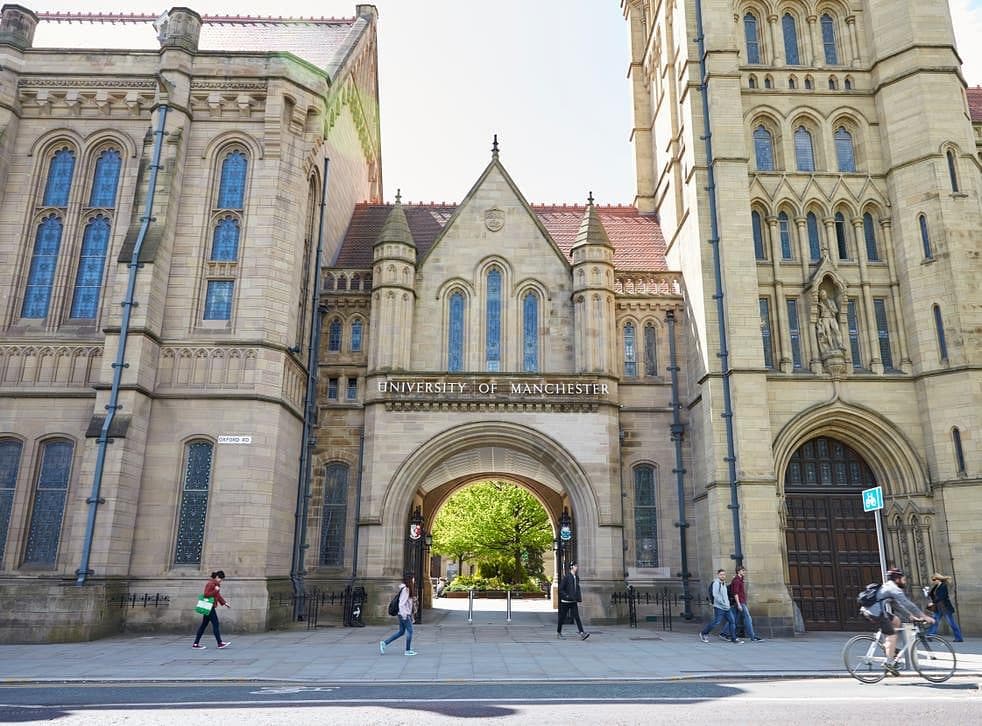Course content for year 1
During Years 1 and 2, you will be mostly based on The University of Manchester's Oxford Road campus, with visits to centres of excellence for clinical medicine, community settings and teaching hospitals across the north north-west.
At the start of the course, you are introduced to the learning processes necessary for successful study at university level, and you will learn the consultation skills needed to equip you for early clinical experiences.
Years 1 and 2 are divided into four modules, the content of which relate to the overall curriculum themes of doctor as scientist and scholar, doctor as practitioner and doctor as professional, as stipulated by the General Medical Council.
Each module is divided into a series of topics that can take the form of one or more themed cases. The cases contextualise learning to prepare you for the way in which doctors meet patient problems. The approach to learning around the themed case discussions will develop your skills in collaborative group working and independent learning.
There is an emphasis on practical work, including anatomy dissection, physiology and pharmacology practical classes, clinical experience, and personal development activities that are designed to introduce you to the skills and attitudes necessary to become a successful junior doctor.
You will learn about the body through detailed studies of molecules, cells, tissues and organs and the systems that control their activities. The modules are partially system-based.
In the Year 1 Life Cycle module, you will study the cellular and molecular processes that underlie reproduction, development and growth. In addition, you will explore the immune system and the pathophysiology of genetic disease and cancer. The second module of Year 1, Cardiorespiratory Fitness, focuses on the chest and the function of the heart, lungs and blood.
Course content for year 2
Year 2 continues with two more modules. The first is Mind and Movement, where you will explore the brain and the nervous system connections to the muscles that move the skeleton. The focus is on neuroscience, but the concepts in this module prepare you for concepts applied to clinical medicine, including mental health.
The final module, Nutrition, Metabolism and Excretion, introduces you to the gastrointestinal system, the kidneys and the key hormonal mechanisms involved in regulating these systems.
There are also opportunities for you to begin developing a Personal Excellence Path for your special interests in medicine. The activities in Years 1 and 2 support literature appraisal, academic writing, team-working and presentation skills.
Course content for year 3
From the beginning of Year 3 until the end of your final year, you will learn primarily though clinical placements organised around our Health Education Zones that comprise four base hospitals and their associated teaching hospitals and community placements.
You will have a base hospital where you will spend a greater proportion of your time; some time will be spent at other Health Education Zones according to their areas of specialty and expertise. Limited time is spent on the University campus.
In Year 3, you will spend the majority of your week learning from real patients, and the basic scientific knowledge and clinical skills you acquired in the earlier years will be applied in clinical settings.
The first semester will involve general medical placements giving you access to common conditions in appropriate settings. These two 6-week blocks will be followed by three 4-week blocks in the second semester that will expose you to a more complex clinical environment, which will include more acute medical settings and a placement within a surgical specialty.
Personal Excellence Pathway: Applied PEP project
Towards the end of the year, you will undertake the Applied Personal Excellence Pathway (APEP). This will give you the opportunity to carry out an original project involving, for example, basic or applied research, service evaluation, or educational development, supervised by a subject expert from the University or the NHS.
Student-Selected Clinical Placement
The final activity of the year will allow you to select a placement in an area of clinical interest to you from within our Health Education Zones. The placement will give you the time and opportunity to reflect on your future career choices within medicine.
Course content for year 4
Year 4 will broaden your clinical learning across the medical specialties, offering immersion in new clinical placements with supervision and teaching by specialty experts.
There will be clinical placements in:
-
general practice and clinical public health;
-
mental health, neurology and special senses;
-
musculoskeletal health;
-
ageing and complex health;
-
women's health;
-
child health;
-
oncology and breast health;
-
dermatology and infectious diseases.
PEP: Quality and Evidence
As you become more experienced in clinical environments, the PEP in Year 4 will focus on broader concepts of working in the NHS through quality enhancement projects. This will be completed in a single 4-week placement.
Elective
The year will end with a student elective placement, commonly an overseas experience of medical practice in an unfamiliar healthcare environment.
Course content for year 5
The final year of the course will prepare you for your final university exams, national assessments such as the Prescribing Safety Assessment and, for your role as a foundation year doctor in the NHS, the year is your preparation for practice.
Clinical placements will include further general medical and surgical placements, general practice and acute medicine. A community placement will allow you to understand how medical services are delivered outside of the hospitals and general practices, for example, through experience in community paediatrics or community psychiatry.
All students will undertake a Student Assistantship placement. You will be appropriately supervised and integrated into a clinical unit while you undertake most of the duties of a newly qualified doctor, including shift-working and being on-call.
The final year will include a further Quality and Evidence PEP project and another opportunity to explore career choices through a second Student-Selected Clinical Placement.
